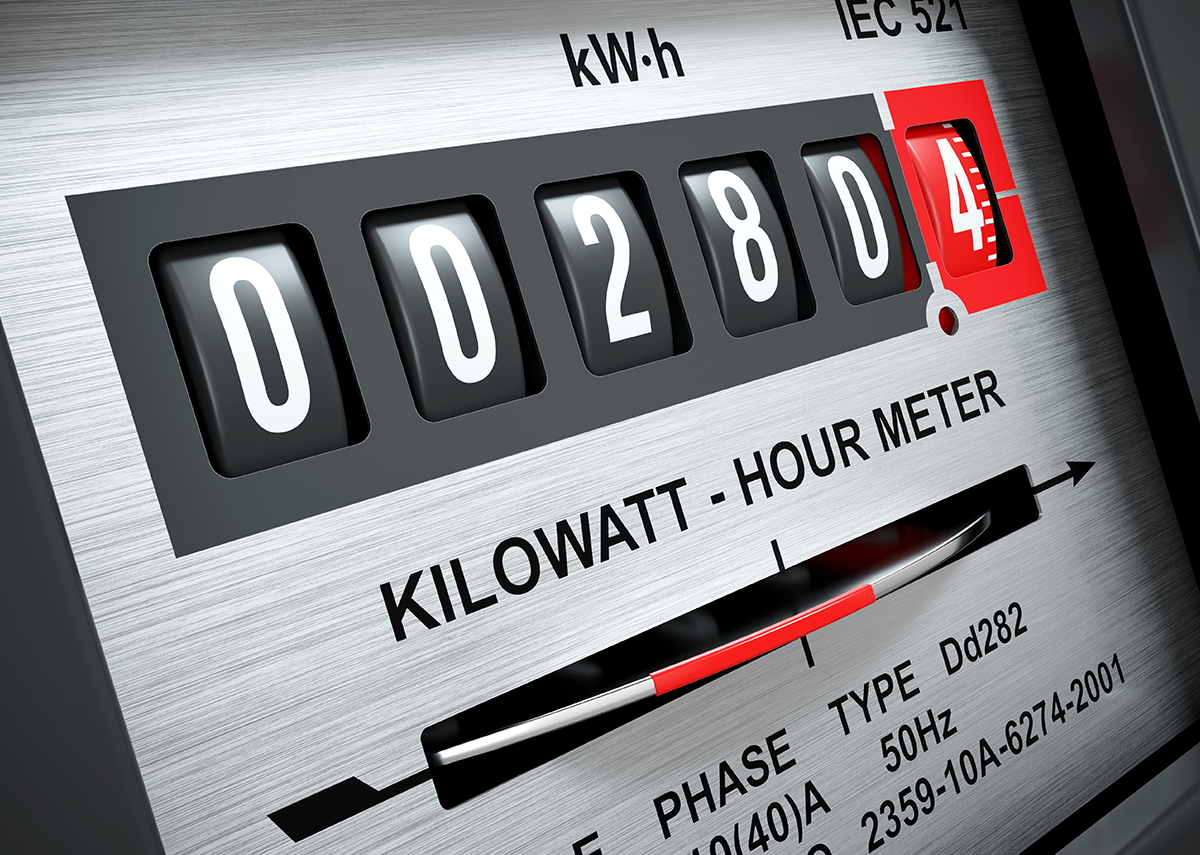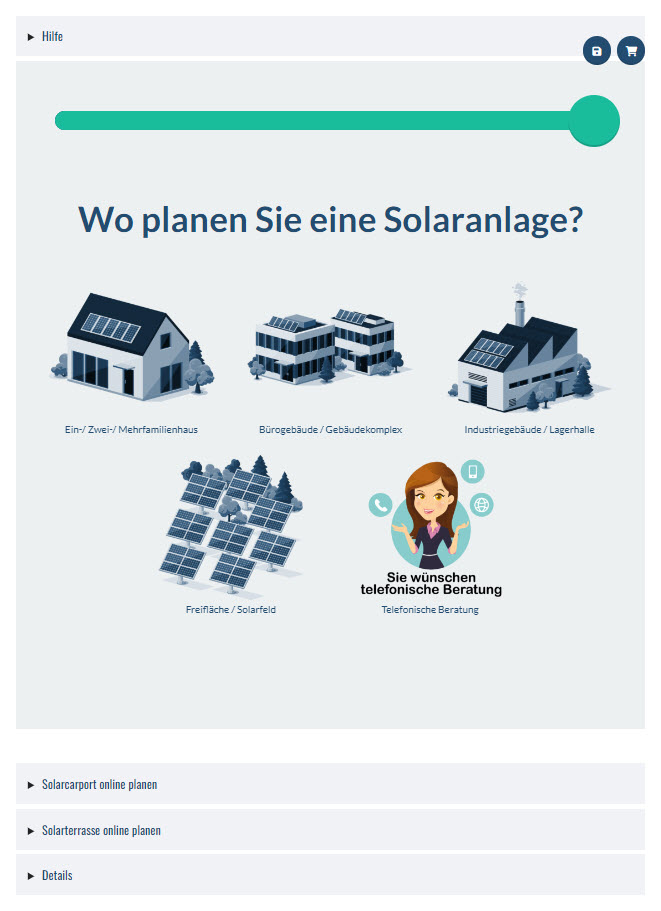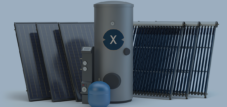Top ten tips and what you should know: Lower production costs of renewable energy are a competitive advantage
Language selection 📢
Published on: September 14, 2023 / update from: September 15, 2023 - Author: Konrad Wolfenstein

Cheaper production costs for renewable energy are a competitive advantage – Image: KsanderDN|Shutterstock.com
🗒️ Renewable energy sources are often more cost-effective than conventional alternatives
In recent years, the landscape of energy production has changed significantly. The transition to renewable energy has gained momentum worldwide, and a key reason for this is the economic attractiveness of these energy sources.
1. Falling costs for renewable technologies 📉
Over the past two decades, the cost of solar panels and wind turbines has fallen significantly. Technology has advanced, efficiency has increased, and mass production has further reduced prices.
2. Subsidies and government incentives 🏛️
Many governments around the world are offering incentives and subsidies for renewable energy, further encouraging investment in these technologies and reducing costs for consumers.
3. Unpredictable fuel costs ⛽
Conventional energy sources such as coal, oil and gas are subject to fluctuations in the world market. In contrast, the “fuel costs” for wind, sun and water are zero, which leads to more stable and often lower prices.
4. Environmental impact and social responsibility 🌍
Businesses and consumers are increasingly recognizing the environmental impact of conventional energy sources and are looking for greener alternatives. Renewable energy offers this opportunity and can often be more cost-effective when long-term environmental costs are taken into account.
5. Easier integration and storage solutions 🔋
With advances in energy storage solutions such as battery technologies, renewable energy can be more easily integrated into the power grid, further improving its efficiency and economic viability.
📝 Expert opinions on renewable energy 🌿
1. Competitive advantage through renewable energy 🥇
In the global competition for investments and market shares, companies that rely on renewable energies gain a clear advantage. This not only through cost efficiency, but also through an improved brand image.
2. Renewable energies as a driving force for jobs 💼
With the introduction and spread of renewable energies, new jobs are being created worldwide - from research and development to installation and maintenance.
3. Regional advantages and energy independence 🌐
Countries that rely on renewable energy can reduce their dependence on imported fuels and thus increase their energy independence.
4. Renewable energies and their role in climate protection 🌡️
Global warming is a serious threat and renewable energy plays a critical role in reducing greenhouse gas emissions.
📣 Similar topics
- 🌍 Renewable energies: A revolution in the energy market
- 📉 The cost efficiency of renewable energies: A paradigm shift
- 💼 Green energy creates green jobs
- 🌐 Local energy for a global future
- 🌡️ Renewable energies in the fight against climate change
- 🔋 Storage technologies: The missing piece of the puzzle
- 🏛️ Why governments should rely on renewable energy
- 🥇 Renewable energies as a competitive advantage
- ⛽ Conventional vs. renewable energies: A cost comparison
- 🌿 The green future: Why renewable energy is the answer
#️⃣ Hashtags: #RenewableEnergy #GreenFuture #ClimateProtection #EnergyIndependence #Sustainability
🗒️ The subsidies and real costs of nuclear power
Nuclear energy has long played an important role in electricity generation in many countries. When discussing the actual costs of nuclear power and its comparability with renewable energy, several factors must be taken into account.
1. Costs of insurance against accidents
Nuclear power plants carry inherent risks. Accidents such as Chernobyl or Fukushima have not only caused devastating environmental impacts, but also high financial costs. It is likely that the cost of insuring against such accidents is enormous and is usually subsidized by governments.
2. Radioactive waste and final repositories
Dealing with radioactive waste is one of the biggest challenges in nuclear energy. Safe storage over long periods requires immense investment. Final storage is a complex and expensive undertaking. These costs are often borne by taxpayers and are not reflected in electricity prices.
3. Dismantling nuclear power plants
When a nuclear power plant reaches the end of its operational life, facilities must be dismantled and the site rehabilitated. This process is expensive and can take decades.
Would nuclear power be significantly more expensive?
If all of these costs, as well as the direct and indirect subsidies that nuclear power plants receive, were included in the price of electricity, nuclear power would be significantly more expensive than it is now. This would also change the price comparison with renewable energies.
🌍 Global context
It is important to understand that the transition to renewable energy is not just for economic reasons. There are also environmental and health issues that need to be taken into account. The long-term consequences of nuclear energy are not yet fully understood, but the risks are significant.
🌱 Renewable energies in comparison
In contrast, the cost of renewable energy has fallen significantly in recent years. Solar and wind energy are becoming increasingly competitive. These forms of energy production come with their own challenges, but they are more sustainable and have a lower environmental impact.
📈 Economic considerations
It would be a mistake to only look at the direct costs of generating electricity. The external costs caused by environmental damage, health risks and other factors also need to be taken into account.
🤔 Conclusion
The debate over the cost of nuclear energy compared to renewable energy is complex. However, it is clear that when all costs are taken into account, nuclear energy is not as competitive as it is often made out to be.
📣 Similar topics
- 🌍 Nuclear power vs. renewables: A global comparison
- 🌱 The future belongs to renewable energies
- 📈 The hidden costs of nuclear energy
- 🤔 The real costs: What we really pay for nuclear power
- 🔋 Energy transition: Why renewables are the better choice
- ⚠️ Radioactive waste: a burden for generations
- 🌦 From the atom to the sun: the transformation of the energy industry
- 💡 Light at the end of the atom: The shift to green energy
- 🏭 Dismantling nuclear power plants: An expensive affair💸 Subsidies in the energy industry: Who really pays?
#️⃣ Hashtags: #nuclear costs #energy transition #renewableenergies #nuclear risks #real electricity prices
📣 Energy-related renovation and new construction, consulting, planning and implementation for industry, retail and municipalities
Our experienced team will support you in optimizing your buildings to reduce energy consumption and promote sustainable energy use with photovoltaics. We analyze your individual needs and create tailor-made concepts that make sense both economically and ecologically. Regardless of whether it is about the energy-efficient renovation of existing buildings or the construction of new energy-efficient structures, we are at your side. Industrial facilities, retail buildings and municipal facilities can reduce their energy costs and reduce environmental impact while improving the comfort and efficiency of their buildings through our tailored solutions.
👨🏻 👩🏻 👴🏻 👵🏻 Energy-saving renovation and new construction, advice, planning and implementation for private households
We offer comprehensive support for private households in the energy-efficient renovation and construction of new buildings with photovoltaics. Our experienced team is at your side to help you advise, plan and implement your sustainable energy solutions. We analyze your energy consumption, identify savings potential and develop tailor-made concepts to improve your energy efficiency. From improving building insulation to installing energy-efficient windows and doors to installing photovoltaic and solar systems - we accompany you step by step to make your home more energy efficient and environmentally friendly. Trust in our expertise and benefit from the numerous advantages that energy renovation and the use of renewable energies offer you. Together we will create a sustainable future for your home.
Plan your solar system for the most common applications conveniently online with our solar system planner!
With our user-friendly solar system planner you can plan your individual solar system online. Whether you need a solar system for your home, your business or for agricultural purposes, our planner offers you the opportunity to take your specific requirements into account and develop a tailor-made solution.
The planning process is simple and intuitive. You simply enter relevant information. Our planner takes this information into account and creates a tailor-made solar system that meets your needs. You can try out different options and configurations to find the optimal solar system for your application.
Additionally, you can save your plan to review later or share with others. Our customer service team is also available to answer your questions and provide support to ensure your solar system is optimally planned.
Use our solar system planner to plan your individual solar system for the most common applications and advance the transition to clean energy. Start now and take an important step towards sustainability and energy independence!

The solar system planner for the most common applications: Plan the solar system online here - Image: Xpert.Digital
More about it here:
What are production costs?
Production costs are the total costs incurred in producing a product or providing a service. They include both direct costs (e.g. material costs, labor costs) and indirect costs (e.g. depreciation, general administration costs).
Production costs are particularly important for companies to determine the break-even price of a product or to decide whether it makes economic sense to produce a product or offer a service. A product or service is considered profitable if the price achieved exceeds the production costs.
Suitable for:
Production costs in the comparison of nuclear power plants versus solar systems
Comparing production costs between nuclear power plants and solar plants is complex and can vary depending on region, technology, financing conditions, fuel prices and other factors. Here are some general considerations about the two technologies:
Nuclear power plants
Investment costs
The construction of a nuclear power plant requires high initial investments. These include costs for reactor construction, safety systems, fuel management and other factors.
operating cost
Once a nuclear power plant is operational, the fuel costs (e.g. for uranium) are relatively low compared to the total costs. However, there are also costs for maintenance and operation.
Long-term costs
The long-term costs include the safe storage of the radioactive waste and the dismantling of the reactor after it is shut down.
Risks
In addition to the direct costs, the potential costs in the event of a serious accident and the associated liability risks must also be taken into account.
Solar systems
Investment costs
The cost of solar panels has fallen sharply in recent years, reducing the initial investment for solar projects. However, there are still installation and mounting system costs.
operating cost
The operating costs of a solar system are relatively low because sunlight is free. However, there are maintenance costs to keep the system in good condition.
lifespan
A solar system typically has a lifespan of 20-30 years, with efficiency decreasing over time.
Scalability
One advantage of solar systems is their scalability. You can start with a small installation and expand it over time.
Production costs
In summary, the production costs for solar power have fallen in many regions of the world in recent years and in some cases are already competitive with nuclear power or even cheaper. However, it is important to emphasize that the costs depend heavily on local conditions, the respective technologies and the political framework. It should also be noted that the price of electricity is not the only factor in deciding on a particular technology; Aspects such as security of supply, environmental impacts and political considerations also play an important role.
🗒️ Why couldn't the nuclear power plants in Germany be insured and why would the state have to step in here?
Nuclear power and insurance are two topics that at first glance have little to do with each other. But when you look deeper, you realize that there are major financial and security considerations that closely link the two areas. Let's take a closer look!
😲 Incredible risks
1. Serious nuclear accidents are rare but devastating
The likelihood of a major nuclear accident is low. But when it happens, the effects are catastrophic. We're not just talking about environmental damage, but also health risks and long-term economic consequences.
2. Unpredictable costs
The damage can run into billions or even trillions. Such sums are simply too high and unpredictable for insurance companies. Who wants to pay for something they can't estimate the cost of?
🤯 Limits of the insurance world
3. What about pools?
One might think that insurance companies could band together to share such high risks. They do, but even the largest insurance pool couldn't cover the costs of a major nuclear accident.
4. Profitability? None!
If nuclear power plants actually had to insure all potential risks, they simply couldn't afford it. The rewards would be astronomical!
🤝 The state as a savior?
5. Step in in an emergency
Many countries have introduced regulations that limit the liability of nuclear power operators. Why? Because nuclear energy is in many cases seen as necessary for national energy supplies. But that also means that the state (and ultimately taxpayers) would have to step in in the event of a disaster.
6. National security and energy supply
Despite all the risks, nuclear energy also has advantages. It can help ensure energy independence and reduce CO2 emissions. But at what price?
🤔 Conclusions
It is clear that insuring nuclear power plants is not an easy undertaking. The potential risks are enormous and the costs could be devastating for insurers and power plant operators alike. The question remains whether the benefits of nuclear energy are worth the potential risks.
📣 Similar topics
- 🤯 The unimaginable risks of nuclear power
- 😲 Why nuclear power plants cannot be insured
- 🤔 Nuclear power: a necessary evil?
- 🤝 The state as the last lifeline
- 🌍 Nuclear energy and its role in the energy future
- ⚠️ The high price of nuclear safety
- 💡 The advantages and disadvantages of nuclear energy
- 💰 The economic aspects of nuclear power
- ⚖️ Legal challenges in nuclear energy insurance
- 🌐 Nuclear energy in the global energy debate
#️⃣ Hashtags: #NuclearPowerRisks #EnergyFuture #InsuranceDebate #StateSecurity #NuclearChallenges
🗒️ Subsidizing the nuclear energy industry
The energy industry is a complex field with different energy sources, each with their own advantages and disadvantages. In many countries, nuclear power has been subsidized over the years. The reasons for this are diverse:
1. Securing the energy supply
Nuclear power plants can produce energy continuously and are not dependent on weather conditions, as is the case with renewable energies.
2. Reduction of CO2 emissions
Compared to coal-fired power plants, nuclear power plants produce less CO2 during operation.
3. Economic interests
The nuclear industry creates jobs and can promote economic growth.
However, there are also points of criticism
💡 Costs for the taxpayer
Many governments have heavily subsidized nuclear energy. This often means that taxpayers bear a significant share of the costs, whether through direct subsidies or through indirect support such as tax breaks or government-guaranteed loans.
💡 Energy companies
Many energy companies have benefited from these subsidies by allowing them to increase their profit margins without bearing the full cost of nuclear energy. This has led to accusations that they are profiting at the expense of taxpayers.
💡 Long-term commitments
The disposal of radioactive waste and the dismantling of nuclear power plants are costly processes that often have to be borne by the public sector, which in turn is financed by taxpayers.
💡 Alternatives to nuclear power
Many argued that nuclear power subsidies could be better invested in renewable energy, which is more sustainable and safer in the long term.
➡️ What is completely forgotten in all debates these days after the nuclear power plants have been switched off
🌍 Impact on the environment and society
In addition to the economic aspects, there are also environmental and social consequences of nuclear power. Accidents at nuclear power plants can have catastrophic consequences, both for the environment and for surrounding communities.
🏭 Energy companies and their role
It is important to consider the role of energy companies in the nuclear debate. While they benefit from the profits, they also have significant responsibilities in terms of safety standards and transparency to the public.
However: taking responsibility is not the same as taking risks!
📣 Similar topics
- 🏛️ The debate about subsidies in the nuclear energy industry
- 🍃 Nuclear power vs. renewable energies: A cost comparison
- 💸 Who pays the bill? Taxpayers vs. energy companies
- 🌪️ The true cost of nuclear accidents
- 🌱 The future of energy: Alternatives to nuclear power
- 🏢 Energy companies: profiteers or partners?
- 📊 Economic impact of nuclear subsidies
- 🌍 Nuclear power: environmental impacts and solutions
- 💡 Light and shadow of nuclear energy
- 🌎 A global look at nuclear power and its consequences
#️⃣ Hashtags: #NuclearEnergySubvention #TaxpayersBurden #EnergyZukunft #Energycompanies #RenewableVsNuclearPower
🗒️ Taking responsibility is not the same as taking risks!
“Wearing responsibility” and “carrying risk” are two different concepts, even if they are sometimes connected. Here is a brief explanation:
bear responsibility
refers to the obligation to be accountable for a specific task, function or role. A person or organization that has responsibility must ensure that certain tasks are performed correctly and according to established standards or expectations. When things go wrong, they are expected to resolve the situation or suffer the consequences.
take the risk
refers to the possibility that an adverse event or outcome will occur, resulting in loss or damage. Someone who bears risk accepts the possibility of a negative outcome and is willing to face the consequences that come with it.
Responsibility without financial risk
In many situations, bearing responsibility can also involve bearing risks. For example, a managing director may have both responsibility for the operation of the company and the risk of financial losses. But it is also possible to have responsibility without significant risk or risk without direct responsibility.
🗒️ Top ten tips and what you should know: Lower production costs of renewable energy are a competitive advantage
1. Benefits for the planet
Renewable energy is not only cost-effective, but also environmentally friendly. Lower CO2 emissions and a clean energy source are essential for a sustainable future.
2. Independence from fossil fuels
Reducing dependence on fossil fuels can stabilize energy prices and protect the economy.
3. Competitive prices
As costs fall, renewable energies can in many cases undercut conventional energies in price.
4. New jobs
Renewable energies create jobs, especially in the areas of research, development and installation.
5. Security
Renewable energy is often decentralized, making the energy grid more resilient to major outages.
6. Technological progress
With falling costs and improving technologies, renewable energy may soon make up the majority of the global energy mix.
7. Global leadership
Countries that invest in renewable energy can take a leadership role in the global energy transition.
8. Energy for everyone
Renewable energy can help more people have access to electricity, especially in remote areas.
9. Local economic boost
Local communities benefit from investments in renewable energy through taxes and jobs.
10. Endless source of energy
Unlike fossil fuels, which are finite, renewable energy is virtually infinite as long as the sun shines and the wind blows.
Expert opinions on renewable energy 🌍🔋
🌿 Sustainability & environmental awareness
The environmental benefits are obvious. Renewable energy produces less CO2 and helps achieve global warming goals.
🔌 Independence & cost-effectiveness
Many experts emphasize the benefits of reducing dependence on fossil fuels. This not only protects the environment, but also the economy.
💼 Labor market advantages
The creation of new jobs, particularly in research and development, is a significant benefit of renewable energy.
🛠 Technology & Innovation
Technological advances in the renewable energy industry are impressive. Many experts believe that this sector has the potential to dominate the global energy scene.
🌏 Global influence
Countries that invest in renewable energy can take a dominant position in the global energy scene.
📣 Similar topics
- 🌿 Green Energy: Why renewables are the way forward
- 🔌 Independent of oil: The cost advantages of renewable energies
- 💼 New energy, new jobs: The labor market boom of renewables
- 🛠 Technology meets environment: The wave of innovation in green energy
- 🌏 Global leadership in the energy transition: Who is at the top?
- 🌞 The infinite power of the sun: solar energy as the future
- 💨 With wind in the sails: The rise of wind energy
- 🔋 Battery technology: saving for a green future
- 🌍 A world without CO2: The contribution of renewables
- ⚡ Electrifying Revolution: The rapid change in the energy sector
#️⃣ Hashtags: #RenewableEnergy #GreenFuture #TechnologyTrend #GlobalInfluence #SustainableGrowth
🗒️ Break through the power of energy companies and their global lobby with renewable energies
The energy industry has developed a deep connection with politics and global markets over the years. The dominance of large energy companies and their lobby groups often influences political decisions and regulations. Breaking these power structures through renewable energy can therefore be seen as a key aspect of a sustainable transition to a green future.
1. 🌍 Global trend towards renewable energies
- More and more countries around the world are recognizing the value of renewable energy and investing in technologies such as wind, solar and water.
- The increased focus on renewable energy helps reduce dependence on fossil fuels and thereby undermines the power of traditional energy companies.
2. 🤝 Collaboration between governments and the private sector
- Governments are partnering with the private sector to promote and financially support renewable energy projects.
- This type of collaboration can help challenge traditional energy companies and change the landscape of energy production.
3. 💰 Economic benefits of renewable energies
- Renewable energy often offers cost-effective alternatives to fossil fuels.
- The price stability and falling costs of renewable technologies make them an attractive option for consumers and businesses alike.
4. 📚 Education and awareness raising
- A well-informed public can put pressure on the government to adopt greener policies and accelerate the transition to renewable energy.
- Education and awareness are crucial to raise awareness of the benefits of renewable energy and promote its acceptance.
5. 🛡️ Legal framework
- Clear and supportive legislation can pave the way for the expansion of renewable energy.
- Legal incentives and subsidies can accelerate the transition to greener energy supplies.
📣 Deepening: Expert opinions and further insights
🌱 Green planet, green economy
Switching to renewable energy not only promotes environmental protection, but can also create jobs and stimulate the economy.
🌞 Harness the power of the sun
Solar energy is becoming more accessible and affordable, making it one of the leading renewable energy sources.
🌀 Wind power: A force to be reckoned with
Wind turbines are efficient and provide a constant source of energy that can reduce the need for fossil fuels.
📖 Education: The key to change
Educating the population about the benefits of renewable energy is crucial to its success.
🤖 Technology as an accelerator
Advances in technology can accelerate the transition to renewable energy and increase its efficiency and profitability.
📣 Similar topics
- 🌿 The green transition: Why renewable energies are essential
- 🌍 The global movement towards renewable energies
- 🌞 The bright future of solar energy
- 🌀 Wind power: The invisible power plant
- 💡 Energy Independence: Driving the transition of power
- 📚 Education and enlightenment: Key to the energy transition
- 🛡️ Legislation: A solid foundation for renewable energies
- 🌱 Jobs through renewable energies
- 🤖 Technological revolution in the energy industry
- 🌊 Tidal and Hydropower: The Underrated Giants
#️⃣ Hashtags: #RenewableEnergy #EnergyChange #GreenFuture #EducationForSustainability #TechnologyAndRenewable
The transition to renewable energies is essential not only for ecological but also for economic and social reasons. The dominance of large energy companies and their lobby groups must be broken in order to prevent undemocratic influence on governments.
Technical advice on energy-efficient renovation and new construction with solar solutions and heat pumps/air conditioning systems
I would be happy to serve as your personal advisor.
You can contact me by filling out the contact form below or simply call me on +49 89 89 674 804 (Munich) .
I'm looking forward to our joint project.
Xpert.Digital – Konrad Wolfenstein
Xpert.Digital is a hub for industry with a focus on digitalization, mechanical engineering, logistics/intralogistics and photovoltaics.
With our 360° business development solution, we support well-known companies from new business to after sales.
Market intelligence, smarketing, marketing automation, content development, PR, mail campaigns, personalized social media and lead nurturing are part of our digital tools.
You can find out more at: www.xpert.digital – www.xpert.solar – www.xpert.plus




























